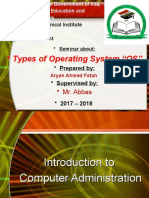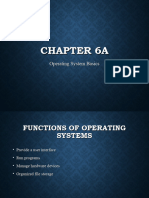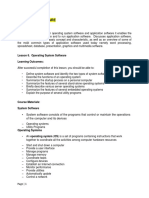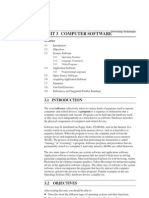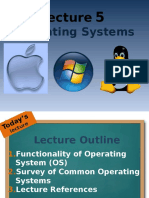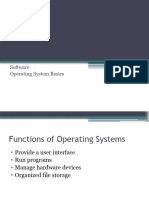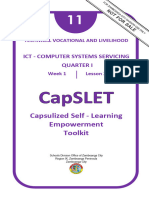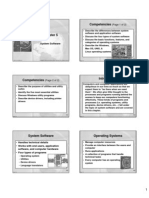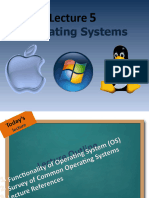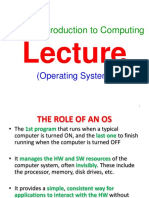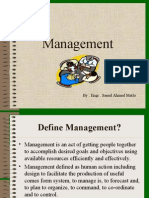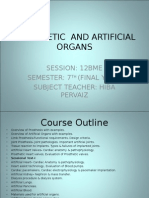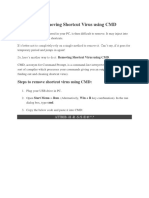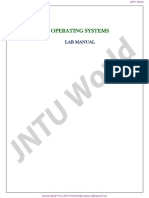McGraw-Hill Technology Education McGraw-Hill Technology Education
Copyright 2006 by The McGraw-Hill Companies, Inc. All rights reserved. Copyright 2006 by The McGraw-Hill Companies, Inc. All rights reserved.
�Chapter 7A
Operating System Basics
McGraw-Hill Technology Education
Copyright 2006 by The McGraw-Hill Companies, Inc. All rights reserved.
�Functions of Operating Systems
Provide a user interface Run programs Manage hardware devices Organized file storage
7A-3
�Types of Operating Systems
Real-time operating system
Very fast small OS Built into a device Respond quickly to user input MP3 players, Medical devices
�Types of Operating Systems
Single user/Single tasking OS
One user works on the system Performs one task at a time MS-DOS and Palm OS Take up little space on disk Run on inexpensive computers
�Types of Operating Systems
Single user/Multitasking OS
User performs many tasks at once Most common form of OS Windows XP and OS X Require expensive computers Tend to be complex
�Types of Operating Systems
Multi user/Multitasking OS
Many users connect to one computer Each user has a unique session UNIX, Linux, and VMS Maintenance can be easy Requires a powerful computer
�Multi user/Multi tasking OS
�Providing a User Interface
User interface
How a user interacts with a computer Require different skill sets
�Providing a User Interface
Graphical user interface (GUI)
Most common interface
Windows, OS X, Gnome, KDE
Uses a mouse to control objects Uses a desktop metaphor Shortcuts open programs or documents Open documents have additional objects Task switching Dialog boxes allow directed input
�Graphical User Interface
�Providing a User Interface
Command line interfaces
Older interface
DOS, Linux, UNIX
User types commands at a prompt User must remember all commands Included in all GUIs
�Command Line Interface
�Running Programs
Many different applications supported System call
Provides consistent access to OS features
Share information between programs
Copy and paste Object Linking and Embedding
�Managing Hardware
Programs need to access hardware Interrupts
CPU is stopped Hardware device is accessed
Device drivers control the hardware
�Organizing Files and Folders
Organized storage Long file names Folders can be created and nested All storage devices work consistently
�Enhancing an OS
Utilities
Provide services not included with OS Goes beyond the four functions Firewall, anti-virus and compression Prices vary
�Enhancing an OS
Backup software
Archives files onto removable media Ensures data integrity Most OS include a backup package Many third party packages exist
�Backup Software
�Enhancing an OS
Anti-virus software
Crucial utility Finds, blocks and removes viruses Must be updated regularly McAfee and Norton Anti-Virus
�Enhancing an OS
Firewall
Crucial utility Protects your computer from intruders Makes computer invisible to hackers Zone Labs is a home firewall Cisco sells hardware firewalls
�Enhancing an OS
Intrusion detection
Often part of a firewall package Announces attempts to breach security Snort is a Linux based package
�Enhancing an OS
Screen savers
Crucial utility for command line systems
Prevents burn in
Merely fun for GUI systems Screen saver decorates idle screens
�Chapter 7A
End of Chapter
McGraw-Hill Technology Education
Copyright 2006 by The McGraw-Hill Companies, Inc. All rights reserved.













